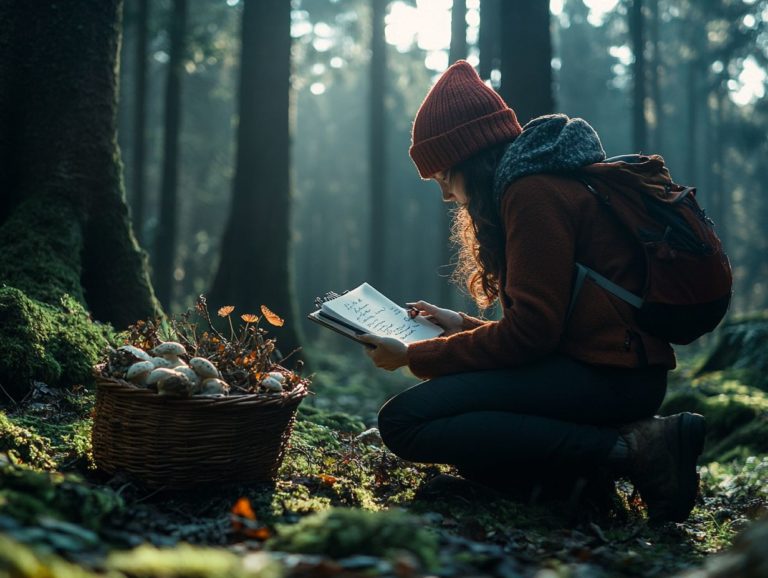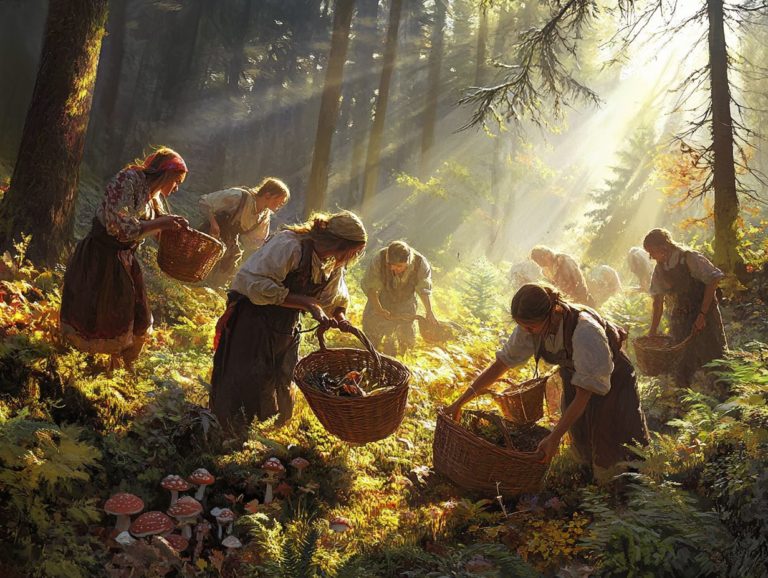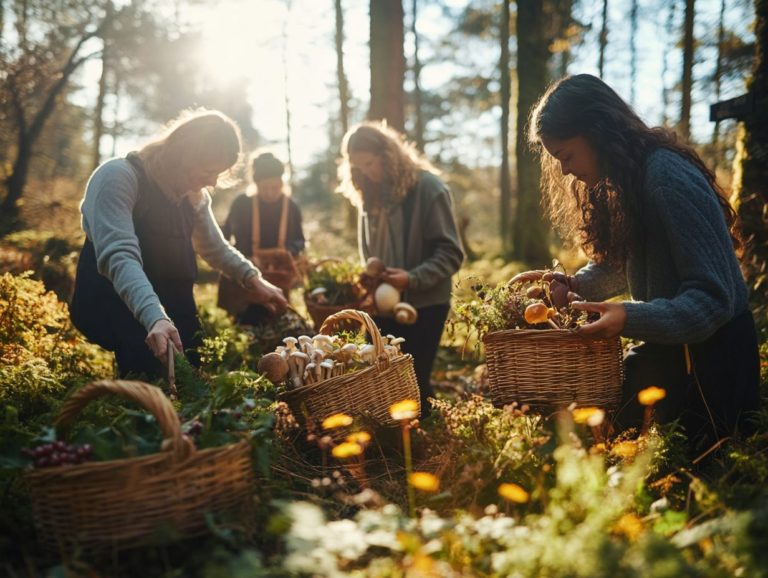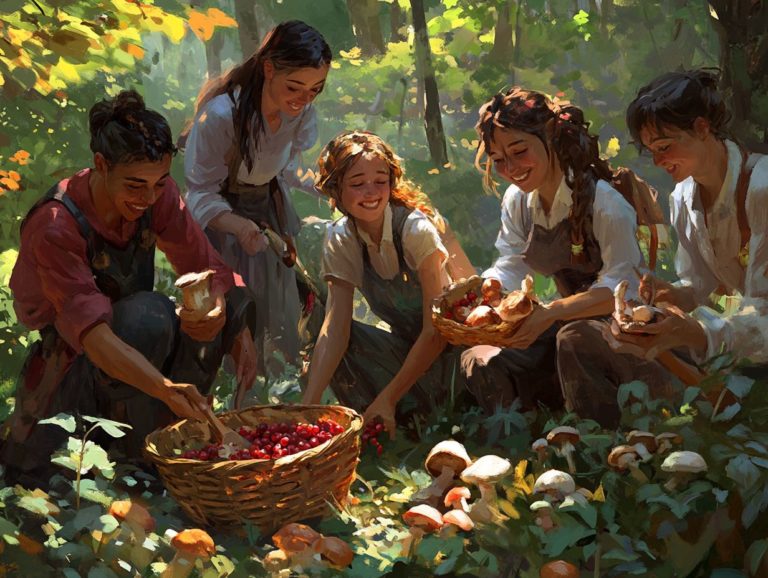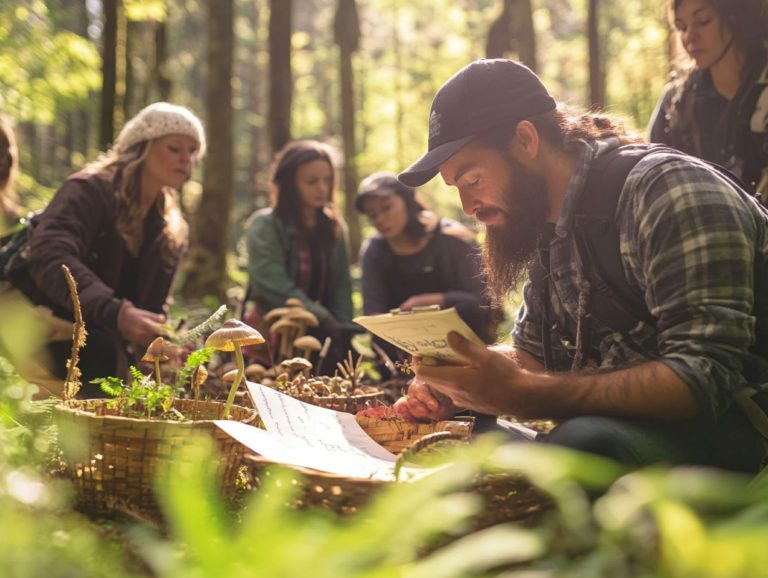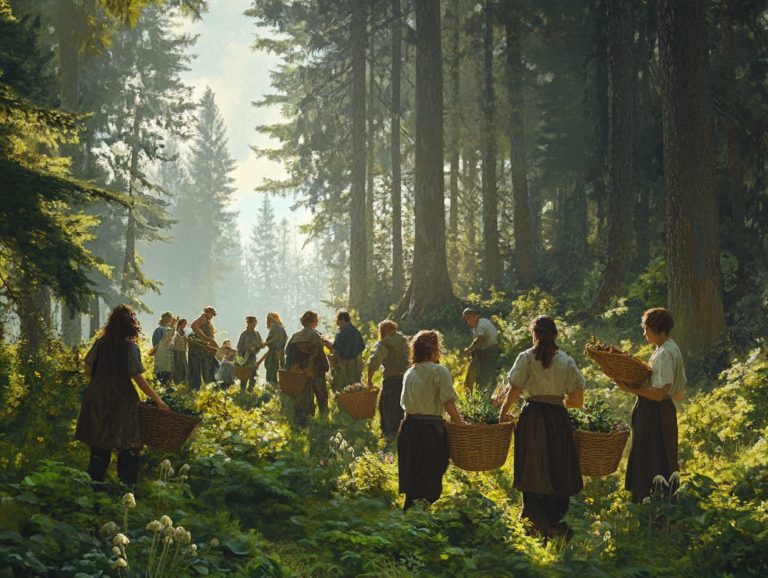Choosing the Right Foraging Community for You
Foraging transcends mere food gathering; it offers a profound opportunity to connect with nature and cultivate community. Whether you re a seasoned forager or just dipping your toes into this enriching world, immersing yourself in a foraging community can elevate your experience and deepen your knowledge of edible plants and fungi.
Get ready! This article is your ticket to mastering the art of foraging, highlighting the benefits of community engagement and outlining key factors to consider when selecting the right group for you. You’ll discover valuable tips on how to fully embrace your foraging adventures. Ready to embark on this exciting journey? Let s dive in!
Contents
- Factors to Consider When Choosing a Foraging Community
- How to Find and Join a Foraging Community
- Getting the Most Out of Your Foraging Community Experience
- Frequently Asked Questions
- What should I consider when choosing a foraging community?
- What types of foraging are typically offered in these communities?
- How can I find a foraging community near me?
- Are there any requirements for joining a foraging community?
- What are the benefits of joining a foraging community?
- Is it necessary to have prior foraging experience to join a foraging community?
Key Takeaways:
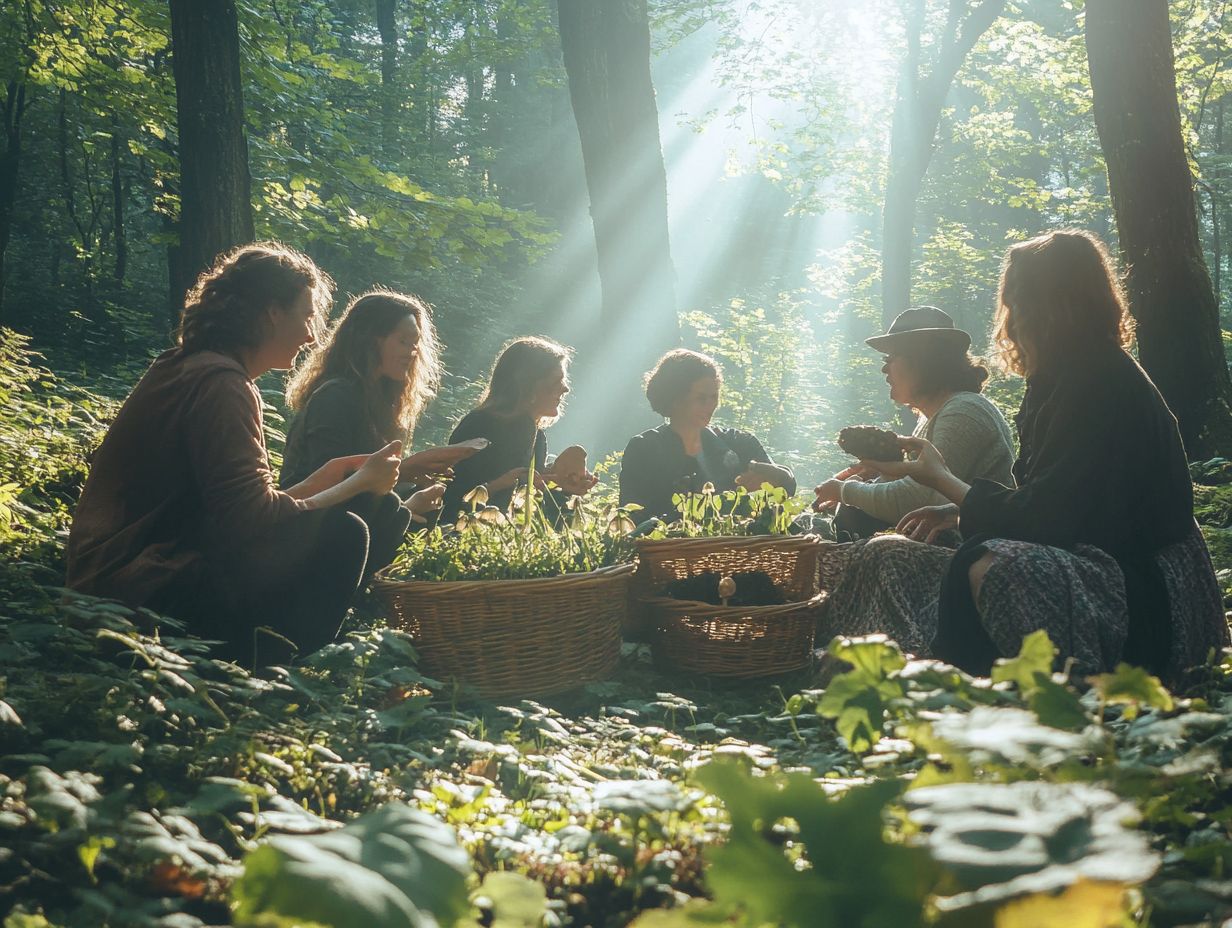
- Location and accessibility should be a top consideration when choosing a foraging community. Make sure it’s easily accessible and holds foraging activities in areas with diverse plant and animal life.
- The types of foraging offered by a community should align with your interests and goals. Some may focus on foraging for food or medicinal purposes, while others may have a broader scope.
- When joining a foraging community, pay attention to the dynamics and values of the group. Choose a community where you feel comfortable and share similar values with other members.
What is Foraging?
Foraging is the art of searching for and gathering wild plants, fungi, and other natural food sources nestled within native ecosystems. This practice fosters a deep connection with nature while highlighting sustainability by encouraging the ethical harvest of edible plants.
Engaging with local herbalists and enrolling in foraging classes allows you to learn to identify various plant species and their uses, ensuring a safe and enjoyable adventure. This age-old skill has blossomed into a significant movement advocating for food security and ways to grow and share food that protect the environment.
Historically, foraging has served as a vital source of sustenance for countless cultures, acting as a crucial link between humans and their environment. The renewed interest in this ancient practice has sparked a culinary revolution, with chefs and home cooks alike reveling in the excitement of sourcing wild foods from local landscapes.
By mastering plant identification techniques and gaining a deeper understanding of seasonal cycles, foragers like you can create dishes infused with unique flavors, celebrating the beauty of your surroundings.
Community gardens play a pivotal role in this movement, providing accessible resources for those eager to cultivate their environmental knowledge and skills. These spaces reinforce bonds within neighborhoods while ensuring a shared appreciation of local bounty.
Benefits of Joining a Foraging Community
Joining a foraging community offers a wealth of benefits that enhance your connection to nature and deepen your understanding of local ecosystems. By participating in community foraging activities, you can share knowledge, learn from experienced herbalists, and explore how to choose the best foraging location while engaging in sustainable harvesting practices that promote food security.
These communities often host herbalism courses and workshops that introduce you to wild food adventures, enriching your appreciation of food traditions and culinary herbs. Beyond building camaraderie, these groups also emphasize ethical foraging practices, ensuring you grasp the importance of harvesting responsibly.
This collective learning environment nurtures your respect for biodiversity and encourages you to thrive sustainably within local food systems. As you gain insights into native plants and their ecological roles, you expand your culinary repertoire and become an advocate for wild food education.
Such collaborations can spark lasting friendships while cultivating a shared commitment to preserving nature’s bounty for future generations.
Factors to Consider When Choosing a Foraging Community
When choosing a foraging community, consider several factors that will enhance your experience and education. First, think about the location and accessibility of community gatherings, as this directly affects your ability to participate in foraging classes and workshops. If you’re unsure where to start, check out how to find foraging communities near you.
It’s also important to assess the community’s dynamics and values, ensuring they resonate with ethical foraging principles and sustainable practices. This alignment creates a safe environment that respects and nurtures local ecosystems.
Location and Accessibility
The location and accessibility of foraging communities play an important part in determining how easily you can engage in foraging activities. To enhance your experience, consider exploring how to promote foraging in your community, whether in bustling urban parks or the tranquility of remote areas.
For many, the closeness to diverse foraging resources not only influences your ability to access edible plants and mushrooms but also enriches your connection to local events that celebrate and promote these practices. Urban parks can become invaluable foraging hotspots, offering a treasure trove of opportunities to explore local flora while nurturing community support and knowledge exchange among enthusiasts.
As you gather with others to swap foraging tips and participate in organized workshops, the sense of camaraderie that develops deepens your appreciation for the natural world. Urban environments with accessible green spaces can fuel innovation in newcomers, seamlessly bridging the gap between the hustle of city life and the joy of outdoor exploration.
Types of Foraging Offered
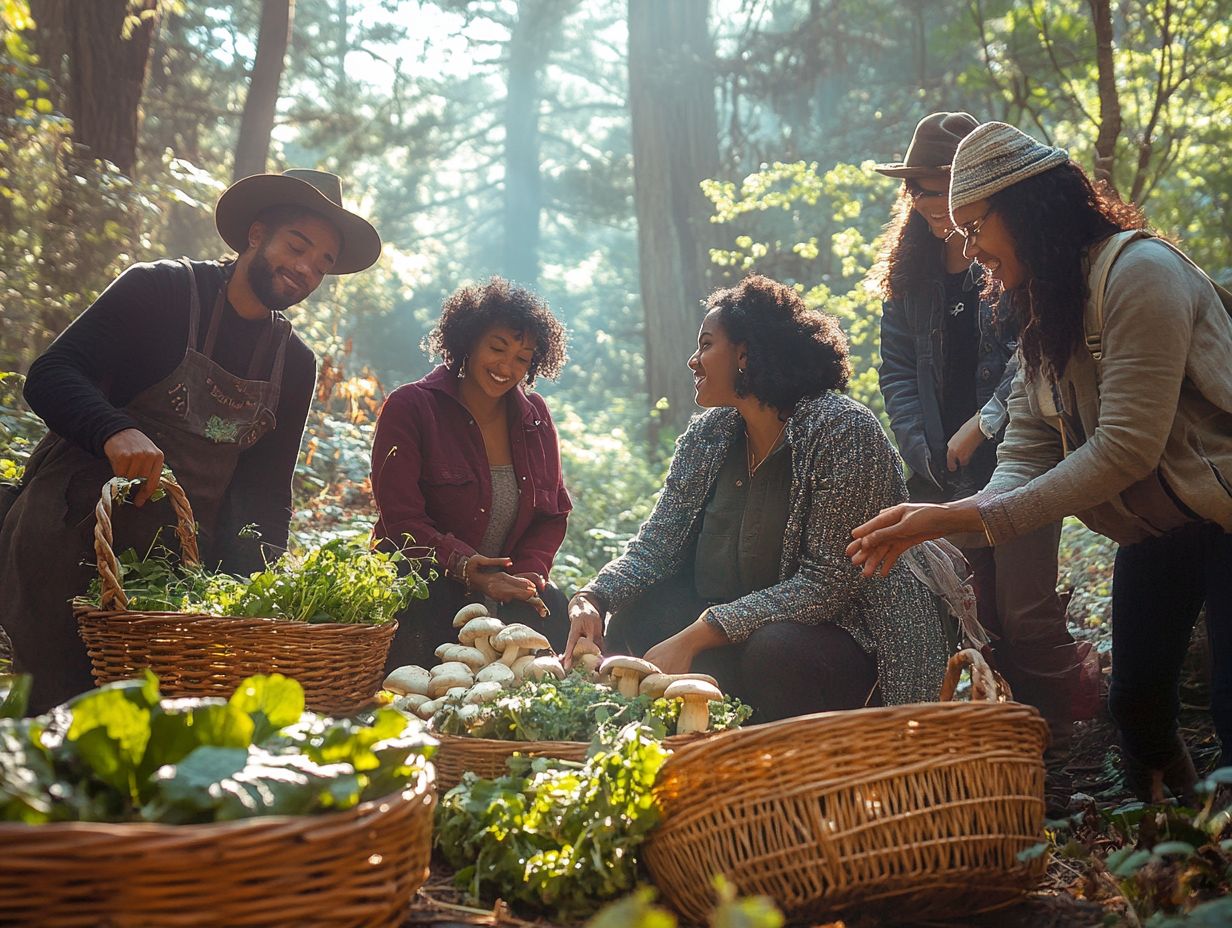
Foraging communities present an array of classes and workshops tailored to your interests and skill levels, ranging from wildcrafting (the practice of harvesting wild plants for food and medicinal purposes) to herbal medicine.
In these courses, you will dive into the important skill of plant identification, learning to recognize edible and medicinal plants in their natural environments. You can also explore a variety of wildcrafting techniques, gaining insights into how to responsibly harvest and utilize nature s bounty without compromising delicate ecosystems.
Herbalist workshops are particularly valuable, enhancing your understanding of the uses and benefits of various herbs for health and wellness. By blending hands-on experiences with expert insights, these offerings empower you to forge a meaningful connection with nature while developing practical skills that you can seamlessly incorporate into your everyday life.
Community Dynamics and Values
Understanding the values of a foraging group is vital for building a supportive environment that not only supports but actively promotes ethical foraging practices.
These dynamics influence how you interact with others, share your knowledge, and contribute to group learning, ultimately enhancing the educational experiences within the group. As you engage with fellow members, you foster a profound sense of stewardship toward local ecosystems, ensuring that your foraging efforts do not deplete plant populations but instead encourage their robust growth and biodiversity.
Your commitment to ethical foraging not only teaches you responsible harvesting techniques but also deepens your connection with the land. This interconnectedness enhances food security by promoting sustainable practices that can be passed down to future generations, cultivating a resilient community that cherishes both its heritage and the natural environment.
How to Find and Join a Foraging Community
Join a foraging community to elevate your experience! By tapping into networking opportunities and utilizing online resources, you can easily uncover local events and gatherings that enrich your journey, including insights on how to choose the right foraging location.
Online Resources and Local Events
Leveraging online resources can greatly enhance your ability to discover local events and foraging classes, fostering your engagement with community gardens and other collaborative activities. By exploring various websites dedicated to foraging education, you can uncover a treasure trove of information, including seasonal guides and local foraging maps that will elevate your skills.
Social media platforms like Instagram and Facebook act as vibrant communities where fellow foragers share their discoveries, tips, and experiences, creating a dynamic sense of belonging. Community calendars often feature workshops and gatherings that connect you with like-minded individuals. Don t miss out on these opportunities!
These resources not only expand your knowledge but also open doors to hands-on experiences, enriching your foraging journey while supporting local ecosystems.
Networking and Recommendations
Building a robust network of local herbalists and fellow foragers offers great tips for finding supportive online foraging communities that align with your interests and needs.
These connections expand your knowledge and unlock unique opportunities for practical learning and sharing experiences. Engaging with seasoned foragers allows you to gain insights into local ecosystems, including how to collect plants at the right time and the ethical considerations essential for sustainable foraging.
Reaching out to local herbalists can be particularly advantageous; they often possess a wealth of information about the wild plants in your area as well as workshops and meet-ups where enthusiasts can come together. By initiating conversations at community events or on online resources and social media platforms dedicated to foraging, you can forge friendships and mentorships, creating a supportive environment for growth, discovery, and wild food education in urban parks.
Getting the Most Out of Your Foraging Community Experience
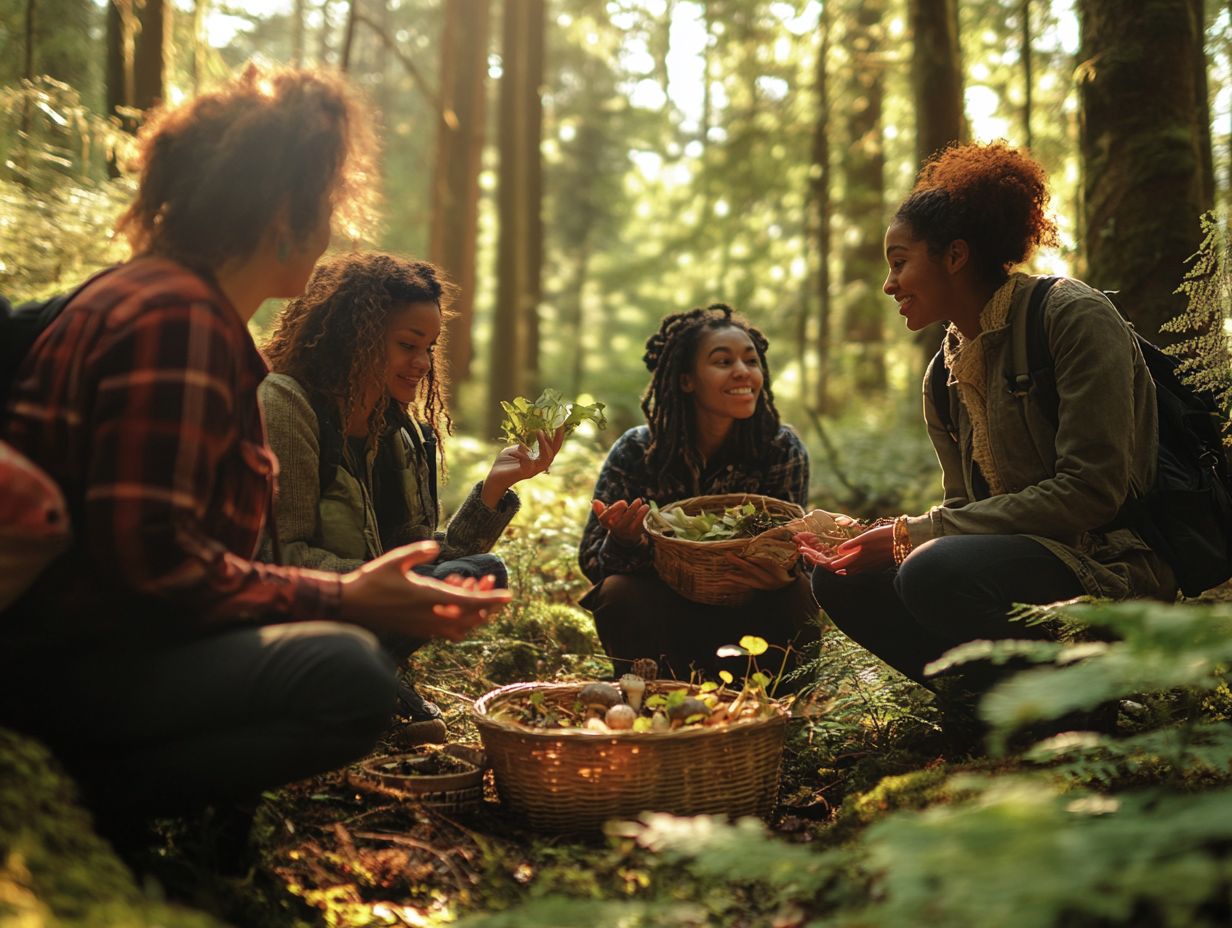
Maximizing your experience in a foraging community requires your active participation in foraging classes and contributions to the collective learning journey. Engaging with others enhances your own understanding of wild food education and fosters a rich environment for shared knowledge about edible plants.
Participating and Contributing
Active participation in community foraging activities enhances your knowledge and promotes ethical practices among all members.
Engaging in these events gives you the power to share your unique insights and experiences, fostering a deeper understanding of local ecosystems and the sustainable practices and safety guidelines that protect them. By exchanging information, you can learn from fellow enthusiasts, creating a robust network of mentors and learners in herbalism dedicated to preserving biodiversity.
Such collaboration and herbal practices nurture a culture where ethical foraging becomes second nature. This ensures that every participant respects regulations while balancing enjoyment of nature s bounty and conserving it for future generations.
These workshops present invaluable opportunities for teaching to enrich your community while reinforcing responsible foraging principles.
Building Relationships and Learning from Others
Connect with others in your foraging community to enhance your learning experience and deepen your understanding of plant relationships and ecosystems.
These connections enrich your individual knowledge and create a vibrant atmosphere for food traditions and recipe experimentation. When you and your fellow foragers share experiences, you cultivate a sense of camaraderie that encourages open discussions about ecological issues, including invasive species.
Such dialogues promote awareness of sustainable practices, fostering a culture of collaboration. Engaging with fellow foragers elevates your ability to identify plants and their uses while emphasizing the importance of preserving local biodiversity and native ecosystems.
Through these interactions, a supportive network for food security through community gardens emerges, giving you the power to become a more informed steward of the environment.
Frequently Asked Questions
What should I consider when choosing a foraging community?
When choosing a foraging community, it’s important to consider factors such as location, types of foraging available, group size, experience levels, and how to choose the right foraging locations for safety measures.
What types of foraging are typically offered in these communities?
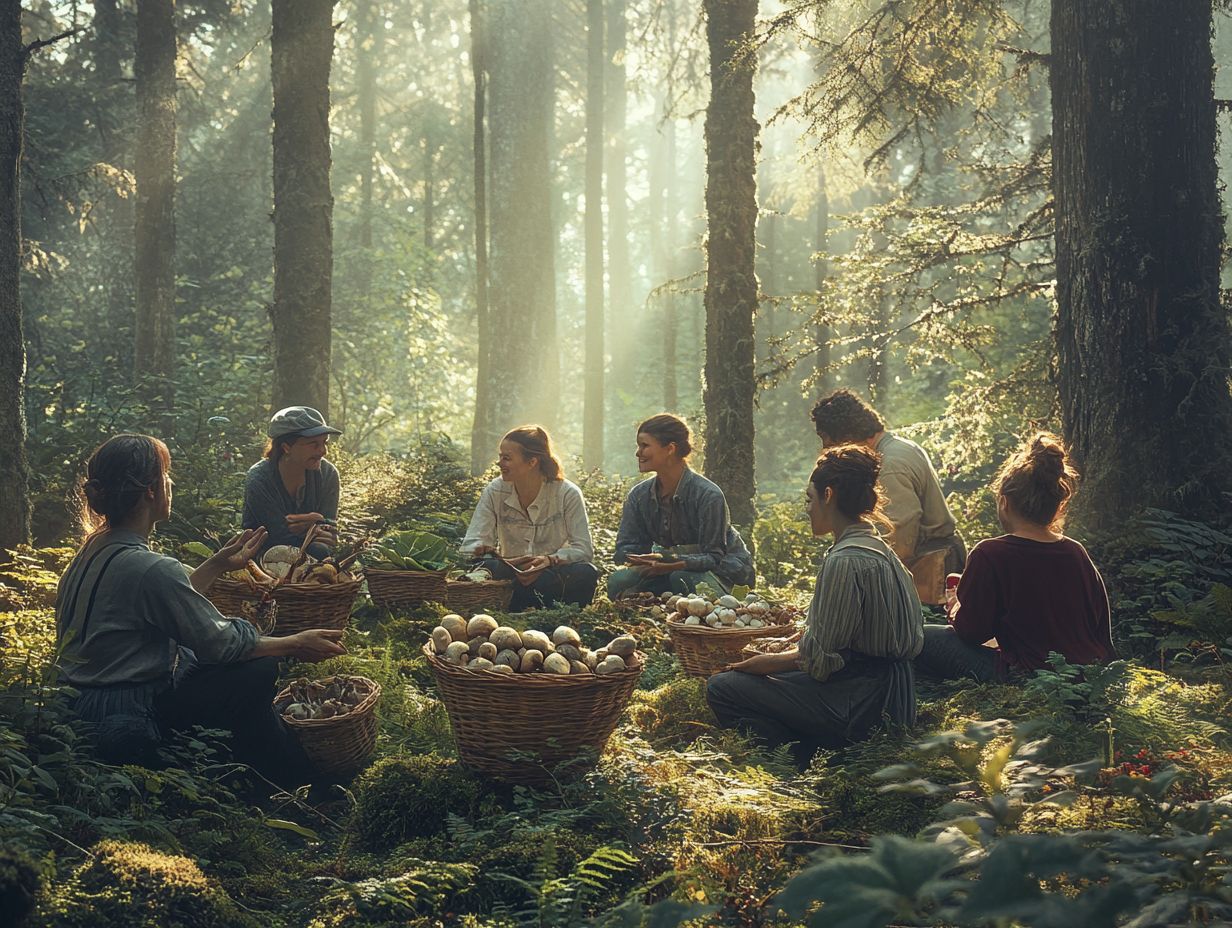
Foraging communities may offer a variety of options, including hunting, fishing, gathering wild plants and mushrooms, and even foraging for sea creatures like clams or crabs.
How can I find a foraging community near me?
Foraging is the practice of searching for and gathering wild food resources. You can find a local foraging community by searching online for groups or clubs. Contact local parks or nature centers to see if they offer foraging programs or have information on nearby communities.
Are there any requirements for joining a foraging community?
Some communities may have specific membership requirements, like age limits or physical abilities. Make sure to ask about these before joining!
What are the benefits of joining a foraging community?
Joining a foraging community offers a sense of belonging, and you’ll have opportunities to learn from experienced foragers as well as discover new foraging spots. To get started, check out this guide on how to build a foraging community!
Is it necessary to have prior foraging experience to join a foraging community?
No prior experience is usually needed! Many communities offer classes for beginners and welcome members of all skill levels.
Explore your options for joining a foraging community today!

